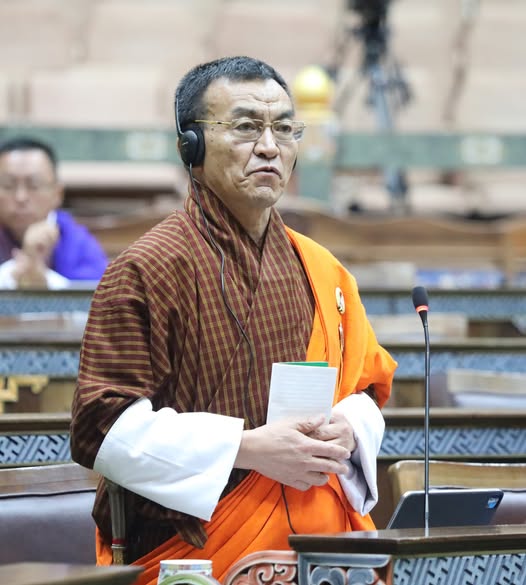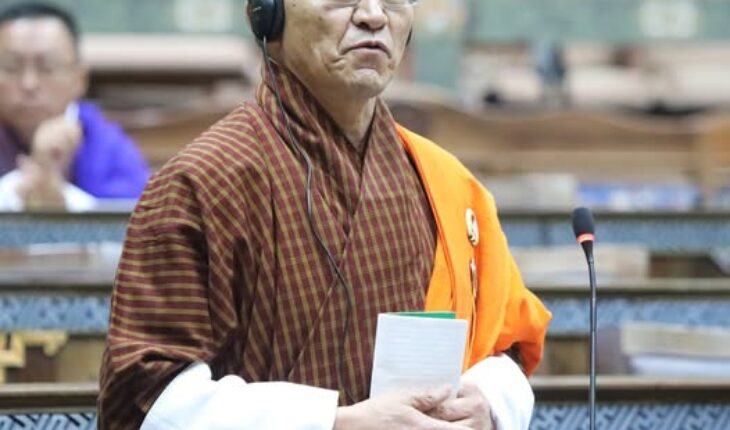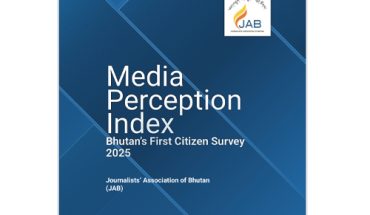
DAWA ZANGMO
Thimphu
The government’s proposed Income Tax Act has sparked significant public debate, particularly over its provision to tax interest income from fixed deposits at a flat rate of 10%.
This move, according to Finance Minister Lyonpo Lekey Dorji, is intended to bring greater equity and neutrality in the taxation of passive income such as dividends and interest, but it is also attracting criticism for potentially discouraging savings and impacting small investors.
The minister of Industry, Commerce and Employment Lyonpo Namgay Dorji argued that applying a uniform 10% withholding tax to both dividends and fixed deposit interest ensures equitable treatment across all passive income streams.
“Because both dividends and interest represent passive income, subjecting them to the same rate avoids distortions in investment decisions and promotes fairness,” Lyonpo said during a presentation of the proposed tax legislation.
This approach, he explained, was considered fairer than the current system, where one form of passive income might be taxed while another remains exempt.
At present, dividends up to Nu 30,000 are tax-deductible, and interest income from fixed deposits is untaxed a policy dating back to the tenure of the People’s Democratic Party (PDP) government in 2016, which had abolished taxes on fixed deposit interest to encourage savings.
The new proposal, however, would not only reintroduce a tax on interest income from fixed deposits but also eliminate the Nu 30,000 deduction on dividend income.
These measures have not been well received by segments of the public, many of whom feel that it could discourage both saving and investment two areas Bhutan’s economy is currently trying to stimulate.
The finance minister laid out the rationale behind taxing fixed deposit interest, pointing out that interest bearing instruments are primarily held by high-net-worth individuals.
“Taxing interest income promotes economic fairness and efficiency by discouraging passive wealth accumulation and encouraging investment in more productive areas of the economy,” Lyonpo explained.
He noted that such a tax could serve as a tool to reduce income inequality and eliminate investment preferences that lean towards low-risk, non-productive forms of capital accumulation.
The government’s reasoning is anchored in the belief that capital should be channeled into more dynamic and productive sectors rather than sitting idle in interest generating accounts.
Furthermore, Lyonpo highlighted that making the tax as withholding at source helps eliminate common loopholes such as underreporting or misclassifying income.
Since the tax is deducted before the income reaches the recipient, it ensures full compliance and simplifies tax enforcement for the authorities.
Another key benefit of the proposed tax regime, according to the finance minister, is that it promotes the principle of horizontal equity ensuring that taxpayers with the same types of income are taxed equally, regardless of the specific financial instruments they use.
“By applying a single 10% rate to dividend and interest income, we ensure that the tax burden is uniformly distributed,” he said.
The proposal, he added, also aligns with Bhutan’s commitments under international tax treaties. Bhutan’s Double Taxation Avoidance Agreements (DTAAs) cap withholding taxes on both dividends and interest at 10%.
Adopting a flat rate of 10% therefore aligns the domestic tax code with these treaties, thereby avoiding conflicts and eliminating the need for taxpayers to claim refunds or navigate treaty benefits.
From an administrative perspective, the flat 10% withholding tax is seen as simple and effective. It offers predictability and ease of implementation for both the government and taxpayers.
“The flat rate simplifies administration and generates a stable revenue stream without imposing additional compliance burdens on the tax authority,” the finance minister said.
The Ministry of Finance also emphasized that the final withholding mechanism is beneficial to taxpayers, as it offers certainty and convenience. Once the tax is deducted at source, no further filing, reconciliation, or administrative follow-up is required.
Internationally, withholding taxes on dividend income range from 10% to 25%. Bhutan’s decision to apply the treaty maximum of 10% is viewed by the government as a balanced strategy ensuring that the country remains attractive to investors while protecting its domestic revenue base.
Lyonpo further revealed that although the decision to reintroduce tax on fixed deposit interest had been debated extensively in the cabinet, the provision was ultimately retained in the proposed bill.
“This is still at the proposal stage, and Parliament is expected to hold further discussions which will shape the final form of the legislation,” he said.
However, critics argue that the proposed 10% tax on fixed deposit interest effectively penalizes savers. For example, if a person deposits Nu 100,000 for ten years at an annual interest rate of 8%, they would earn Nu 80,000 in interest.
Under the proposed law, this interest would be subject to a 10% withholding tax, reducing the actual earnings to Nu 72,000 after a Nu 8,000 deduction.
Moreover, there are concerns that the tax might negatively impact remittances. Many Bhutanese living abroad send money home to support their families or save through fixed deposits.
Taxing these deposits, most argue, could serve as a disincentive for remitters, potentially affecting foreign exchange inflows.
Another point of contention is the removal of the Nu 30,000 dividend tax deduction. Small investors who have been encouraged to participate in Bhutan’s nascent stock market believe that removing this deduction disproportionately affects them.
For individuals investing modest amounts, the loss of this tax benefit could significantly impact their net returns.
“It feels like the government is trying to extract revenue from the very people who are trying to save or invest prudently,” said one small investor who did not wish to be named.
He added that instead of encouraging a culture of saving and investment, this bill seems to punish it.
Given the strong public reaction and the importance of maintaining public trust in the tax system, it remains to be seen whether the bill will be passed in its current form or whether amendments will be introduced to address public concerns.
In the meantime, the government is standing by its position that taxing passive income equitably and efficiently is a necessary step toward long-term economic fairness and fiscal sustainability.
The bill has been tabled in Parliament, with deliberations scheduled to take place in the coming days.





